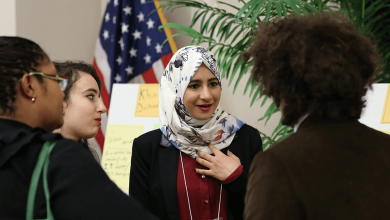Schools and Universities in Turkey that Accept HND Certificates, Second Class and 3rd Class for Masters Degree Programs
Turkey has always been a popular destination for students seeking quality education at affordable prices. If you hold an HND certificate, second class, or third class degree, you may wonder whether you can pursue a master’s degree program in Turkey. The good news is that there are several schools and universities in Turkey that accept these certificates for admission into their master’s degree programs.
In this article, we will explore some of these institutions and the programs they offer, providing you with valuable information to help you make an informed decision about your academic future.
Criteria for Admission into Master’s Programs
To secure admission into master’s degree programs in Turkey with an HND certificate, Second Class, or Third Class undergraduate degree, applicants must satisfy several critical criteria. These criteria ensure that even though the educational backgrounds might differ, the quality and potential of the incoming students remain high. Here’s a detailed breakdown of what prospective students should prepare for:
- Equivalent Certificate Recognition: Applicants must have their HND certificates or undergraduate degrees officially recognized by the Turkish Higher Education Council (YÖK) or a similar authoritative body. This process may involve a detailed evaluation to ascertain the equivalence of the foreign qualification to Turkish standards.
- Proof of English Proficiency: Since many master’s programs in Turkey are offered in English, non-native speakers are typically required to demonstrate their proficiency through standardized tests such as TOEFL or IELTS. Minimum score requirements vary by institution and program.
- Academic Transcripts: Comprehensive academic transcripts that outline the courses taken and grades achieved during undergraduate studies are essential. These documents provide insight into the applicant’s academic journey and readiness for further study.
- Letters of Recommendation: At least two letters of recommendation from academic or professional references can significantly bolster an application. These letters should attest to the candidate’s suitability for postgraduate study, highlighting qualities like academic potential, perseverance, and motivation.
- Statement of Purpose: A well-crafted statement of purpose that clearly articulates the applicant’s academic and career objectives, why they are choosing to study in Turkey, and why they are interested in the specific program is crucial. This document offers a glimpse into the applicant’s aspirations and fit for the program.
- Updated CV or Resume: An updated CV or resume detailing the applicant’s educational background, work experience, skills, and any other achievements is important for a comprehensive evaluation.
- Interview: Some institutions may require an interview (either in-person or via teleconference) as part of the admission process. This step allows the admissions committee to assess the applicant’s communication skills, motivation, and overall suitability for the program.
Applicants must carefully review the specific requirements for each university and program, as there can be additional or varying prerequisites. Preparing a strong application that meets all these criteria is the first step towards pursuing a master’s degree in Turkey with an HND, Second Class, or Third Class undergraduate degree.
Schools in Turkey that Accept HND Certificates, Second Class and 3rd Class for Masters Degree Programs
The educational landscape in Turkey is rich and diverse, offering numerous opportunities for students with varying academic backgrounds to pursue their master’s degree ambitions. For those holding HND certificates, Second Class, or Third Class undergraduate degrees, the following list provides a glimpse into schools in Turkey that open their doors to such qualifications:
1) Middle East Technical University (METU)
Known for its strong emphasis on research and innovation, METU has programs that are designed to accommodate students from various academic standings, providing a robust framework for postgraduate education.
2) Boğaziçi University
Boğaziçi University stands out for its welcoming attitude towards international students and its flexible admission criteria for postgraduate studies. It is a place where students with diverse educational backgrounds can thrive.
3) Istanbul Technical University (ITU)
With a range of engineering and technology programs, ITU values the practical knowledge and experience that HND holders can bring to their master’s programs, alongside those with traditional bachelor’s degrees.
4) Ankara University
This institution offers a variety of master’s programs across different faculties that are accessible to students with HND certificates, Second Class, and Third Class degrees, emphasizing an inclusive education policy.
5) Hacettepe University
recognized for its medical and health sciences programs, Hacettepe University provides pathways for students with different undergraduate qualifications to pursue advanced studies in their chosen field.
Each of these institutions has its unique set of admission requirements and program offerings, making it important for prospective students to thoroughly research and connect with admissions offices to understand how their specific qualifications can be matched with the right master’s program. By offering a pathway for HND holders, Second Class, and Third Class degree graduates, these schools affirm Turkey’s commitment to accessible and diverse postgraduate education.
Universities in Turkey that Accept HND Certificates, Second Class and 3rd Class for Masters Degree Programs
The pursuit of higher education in Turkey is not limited to traditional bachelor’s degree holders. Many universities in Turkey have adapted their admission processes to include candidates with HND Certificates, Second Class, and Third Class degrees, providing a wealth of opportunities for further study. These universities are known for their inclusive policies and commitment to a diverse student body. Here is a list of universities in Turkey that welcome such applicants into their master’s degree programs:
1) Gazi University
Recognized for its wide array of programs, Gazi University in Ankara allows students from various academic backgrounds to further their education, particularly in the fields of engineering, education, and social sciences.
2) Ege University
Located in Izmir, Ege University offers a vibrant campus life and a variety of master’s programs that accept applicants with HND certificates and lower second-class degrees. Its programs in agriculture, medicine, and natural sciences are particularly noteworthy.
3) Koç University
Situated in Istanbul, Koç University is renowned for its high-quality research output and dynamic campus life. It provides several postgraduate opportunities for students with diverse academic histories in business, law, engineering, and social sciences.
4) Çukurova University
This Adana-based institution offers a supportive environment for students with HND certificates and lower-class degrees, particularly in agricultural sciences, engineering, and humanities. It is dedicated to fostering an inclusive educational community.
5) Osmangazi University
Located in Eskişehir, Osmangazi University is another institution that values the diverse experiences and backgrounds students bring to their master’s programs. It is especially welcoming to students interested in education, science, and health sciences.
Each university listed offers unique programs and has specific admission requirements tailored to accommodate students from various academic pathways. Prospective students are encouraged to reach out directly to the universities for detailed information on how to apply with their specific qualifications.
FAQS
Can I do my Masters with HND certificate?
Whether you can pursue a Master’s degree with an HND (Higher National Diploma) certificate depends on the specific requirements of the university and program you wish to apply to. Some universities and programs may accept HND certificates as qualifications for admission to certain Master’s programs, while others may require applicants to have a Bachelor’s degree or an equivalent qualification.
Can I do Masters abroad with second class lower?
Yes, it is possible to pursue a Master’s degree abroad with a Second Class Lower classification in your Bachelor’s degree. Many universities worldwide consider a variety of factors beyond just academic grades when evaluating applicants for Master’s programs. These factors may include relevant work experience, standardized test scores (such as GRE or GMAT), letters of recommendation, personal statements, and interviews
Can someone with third class go for Masters abroad?
Yes, someone with a Third Class degree can pursue a Master’s degree abroad. While admission to Master’s programs can be competitive, many universities consider a variety of factors beyond just academic grades when evaluating applicants.
Does Sweden University accept HND for Masters?
Sweden generally requires applicants to hold a Bachelor’s degree or an equivalent qualification for admission to Master’s degree programs. While Higher National Diplomas (HNDs) are recognized qualifications, their acceptance for admission to Master’s programs in Sweden may vary depending on the university and the specific program. Some universities in Sweden may accept HNDs directly for admission, while others may require additional qualifications or prerequisites.
Does Poland accept HND for Masters?
The acceptance of Higher National Diploma (HND) qualifications for Master’s programs in Poland may vary depending on the university and the specific program. Poland has a diverse range of universities offering Master’s programs, and acceptance policies may differ between institutions. Some universities in Poland may accept HNDs as qualifications for admission to certain Master’s programs, while others may require applicants to have a Bachelor’s degree or an equivalent qualification. It’s recommended to research specific universities in Poland and contact their admissions offices for information on whether they accept HND qualifications for Master’s programs.
Conclusion
In conclusion, Turkey is an excellent option for international students who wish to further their education at the master’s level with an HND (Higher National Diploma), second class or third class qualification. With a growing number of English-taught programs and affordable tuition fees, Turkey is a great value for money. The country also offers a rich cultural experience and easy access to some of the most beautiful natural scenery in the world. So, whether you’re looking for a top-notch education or an adventure-filled life, Turkey has it all.









